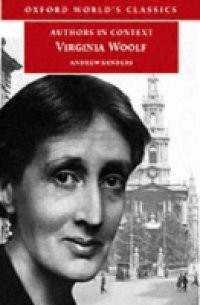Political and social change during Woolf's lifetime led her to address the role of the state and the individual. Michael H. Whitworth shows how ideas and images from contemporary novelists, philosophers, theorists, and scientists fuelled her writing, and how critics, film-makers, and novelists have reinterpreted her work for later generations. - ;During Virginia Woolf's lifetime Britain's position in the world changed, and so did the outlook of its people. The Boer War and the First World War forced politicians and citizens alike to ask how far the power of the state extended into the lives of individuals; the rise of fascism provided one menacing answer. Woolf's experiments in fiction, and her unique position in the publishing world, allowed her to address such intersections of the public and the private. Michael H. Whitworth shows how ideas and images from contemporary novelists, philosophers, theorists, and scientists fuelled her writing, and how critics, film-makers, and novelists have reinterpreted her work for later generations. The book includes a chronology of Virginia Woolf's life and times, suggestions for further reading, websites, illustrations, and a comprehensive index. - ;this fine study...produces a fresh portrait of Woolf and her multi-faceted contributions to English letters. The book's presentation of modern British literary and cultural history makes it a rich resource for Woolf scholars and an illuminating introduction for students - Woolf Studies Annual, Volume 12 d

